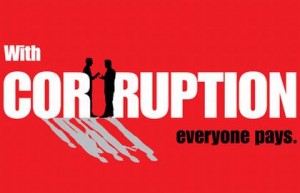 A few months ago, the UK Parliament published my written evidence exposing corruption along with racism and homophobia within the Metropolitan Police Service. The Met had leaked my private files to The Sun newspaper and received two payments for this, later sacking me after I challenged the Force’s behaviour through the courts.
A few months ago, the UK Parliament published my written evidence exposing corruption along with racism and homophobia within the Metropolitan Police Service. The Met had leaked my private files to The Sun newspaper and received two payments for this, later sacking me after I challenged the Force’s behaviour through the courts.
Today, I read the written evidence of James Patrick to the UK Parliament with regards to corrupting crime figures.
James is a serving Metropolitan Police Officer.
My evidence was to the Home Affairs Committee, and his to the Public Administration Committee.
James I know unlike myself is white and straight, but, does it matter? No.
Like me, he is fighting for change. A Force which is accountable to the people it serves. That is the reason we joined.
James is now in disciplinary proceedings, and sadly I have no doubt they will sack him. They did me.
What did I do wrong? I like James, raised things with my seniors which caused me alarm and distress.
How did Scotland Yard respond, instigate Gross Misconduct and charged me with two offences leading to my dismissal.
Discrediting the Police Service and Undermining Public Confidence they said. You couldn’t make it up.
The irony is that, the Commissioner Sir Bernard Hogan-Howe sacked me ‘in-between’ one successful Employment Tribunal and another successful Employment Appeal Tribunal presided over by a High Court Judge.
It is true, desperate people do desperate things. When the Met gets desperate, it does things which would cause my white Mother to be ashamed of. The Force is out of control. It really is.
You only have to look at The Andrew Mitchell Affair.
I have copied a part of James written evidence to Parliament below, which hit home.
The man who is James Patrick, is on the money.
24. By this point I have developed, what is potentially, a unique understanding of the defects in the police “whistleblowing” mechanism. The most simplistic is effectively a double bind in the regulations themselves. The Schedule of Standards of Professional Behaviour make sensible provisions for Honesty and Integrity, and Challenging Improper Behaviour. Problematic is the further provision relating to Discreditable Conduct. In circumstances such as my own, for example, it is possible to preserve honesty and to challenge, but not without potentially causing discredit to the service. The further failure in the mechanism lies within Section 29 of the Police Reform Act 2002 which prevents police officers from making complaints to the IPCC about any officers within their own force. Effectively this pushes officers back into the primary “Catch 22” of the regulations, or ensures that it is their own force which deals with their own problems. The results of this are clear even in my own potted history, but can also be distastefully illustrated by the unravelling of Hillsborough and the undercover policing scandal. The stance of police leadership, ACPO, was made abundantly clear in the statement last December of Andy Trotter, in which he said “Most whistleblowers are airing grievances…Most whistleblowing is internal gossip and attempts to embarrass others in the organisation”. I have personally been told, by a very senior officer, that whistleblowing is looked upon as a “breach of trust and confidence”. As long as this persists nothing can ever change for the better and cover ups will inevitably continue.
I tweeted James earlier @J_amesp and told him that he should be PROUD because he has done the right thing.
Like everything, I have no doubt that history will judge the both of us on whether we have served the public we promised to do without fear or favour in exposing corruption within Britain’s Biggest Police Force.